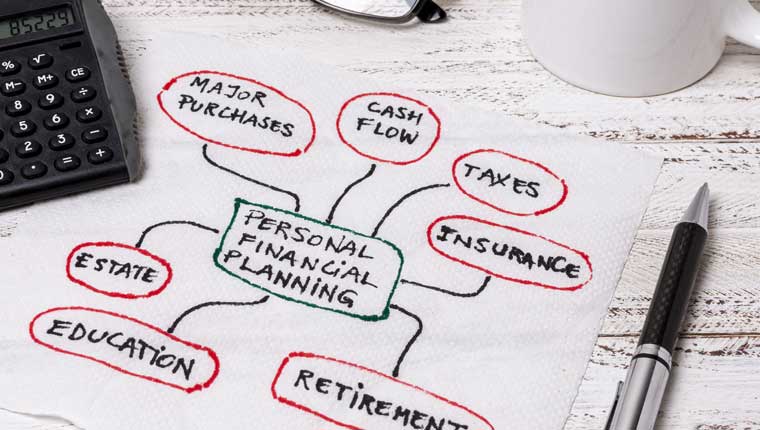There are a variety of reasons why someone may choose to cancel a credit card. And while canceling a credit card is a perfectly legitimate thing to do, you should first be aware of how to cancel a credit card so that it doesn't negatively affect your credit score. Here are some tips to help you make smart financial choices when it comes to canceling credit cards to ensure your credit score is not damaged in the process.
Closing a Credit Card Will Affect Your Credit Score
Once you've paid off a credit card or transferred the balance to a credit card that offers a lower interest rate, you might think that it's best to close that account immediately, however; this isn't always the case. Savvy people should be aware that doing so may have a negative impact on their credit score.
Not only will canceling a credit card reduce the amount of available credit you have for purchasing power, but it can also greatly affect your credit utilization ratio. Your credit utilization ratio represents the amount of revolving credit you’re currently using (credit card balance), divided by the total amount you have available to use (your credit limit).
Ideally, your credit utilization ratio should remain under 30%. The lower you can get it, the more your credit score will benefit. When the percentage increases, this indicates to lenders that you're using a larger amount of your available credit and is a red flag that you may be at a higher risk to lend to.
In addition to impacting your credit score by creating a higher credit utilization ratio, closing a credit card account at the wrong time can lower the average age of the accounts on your credit report. This can also have a negative impact on your score because credit scores are impacted by the length of time you've been making on-time payments and properly managing your credit accounts.
Since having a credit report that shows a long history of responsibly maintaining your credit accounts has a positive impact on your score, closing your older accounts that were paid on time could actually negatively affect your credit score even more than opening a new credit card would.
Once your credit score has taken a negative hit from improperly closing a credit card account, it can take several months to recover. However, for most people if you make timely payments and don’t incur new debt, this shouldn't be a problem.
Reveal tips to get out of debt fast while exposing unrealistic expectations by downloading our guide:
When Does Canceling a Credit Card Make Sense
- High Interest Rate – If your credit card has a high interest rate, it's a good idea to consider canceling the card. Paying excess money on a high-interest credit card isn't a good financial move and could be costing you upwards of hundreds of dollars in interest each year.
- Annual Fees – Cards that come with expensive annual fees are not a good choice, especially if you're not utilizing the benefits or rewards offered by them.
- Overspending – Those who have a habit of overspending due to the availability of a credit card may benefit by closing their credit card to help save money and preserve their credit score. This is a responsible move to make until new spending habits are established.
- Divorce – Keeping finances separate after a divorce is a smart financial decision that can protect your credit and help you avoid unexpected purchases from your spouse.
When Does Canceling a Credit Card NOT Make Sense
- Longevity is Crucial – When you've had the account for many years, and it's one of the oldest accounts in your credit file, it's not a good financial move to cancel the credit card due to its positive impact on your score.
- Sparse Credit – If you don't have very many open credit accounts, canceling a credit card can hurt your score and even make it more difficult to qualify for new credit in the future.
- Lack of Use – Just because you don't use the credit card very often doesn't necessarily mean that the account needs to be closed. Having available credit has a positive impact on your credit score by reducing your credit utilization ratio.

Best Practices to Follow When Canceling a Credit Card
- Check Your Credit – Before canceling a credit card, it's important to check your credit report to assess the open accounts. Don't close a credit card account if you don't have other existing accounts that show your good payment history or if there is no longevity with the accounts to prove creditworthiness over the years.
- Preparing for a Major Purchase – If you're planning to apply for a mortgage or an auto loan in the next few months, it's important to avoid canceling any credit card accounts. Doing so could adversely affect the outcome of those loans.
- Pay Off Debt - If the credit card you plan to cancel has an outstanding balance, it makes financial sense to contact the credit card issuer to come up with a plan for paying off your balance before you cancel the card.
- Alert Authorized or Joint Users – When you prepare to cancel your credit card, any authorized or joint users on the account should be notified so that the card can be destroyed and no future purchases will be made.
- Review Automated Linked Payments – Before canceling your credit card, be sure to double-check if any automated payments are linked to that credit card account so you can update them to a different payment method before you cancel the card.
- Use Your Rewards – If your credit card offers reward benefits, be sure to use or redeem them before you cancel the credit card.
- Request Account Cancelation – When closing a credit card account, be sure to contact the credit card company to let them know you'd like to close the account and ask for written confirmation of this closure. It's also a good idea to request that their notes indicate that the account was closed per your request.
- Confirm Your Account Closing – Upon requesting that your credit card account be canceled, follow up in writing and be sure to include all of your contact information as well as the credit card account number to ensure the request was answered and completed.
- Destroy the Card – Once your credit card account is canceled, the card is no longer needed. Safely destroy the card by shredding it or cutting it into pieces and properly disposing of it so that it doesn't fall into the wrong hands.
Review Your Credit Report With Peach State FCU
Your credit score is a valuable tool lenders use to determine if you're able to be approved for an auto loan, mortgage, credit card, or other loans. Keeping an eye on your credit report is a great way to stay on top of your financial health and ensure you're doing everything you can to maintain a healthy credit score.
Peach State FCU offers a free credit report review brought to you by our financial education and resource partner BALANCE. Their counselors are certified credit report reviewers and are available to offer the guidance and support you need, no matter your current financial situation. Be sure to get in touch with their counselors today!





